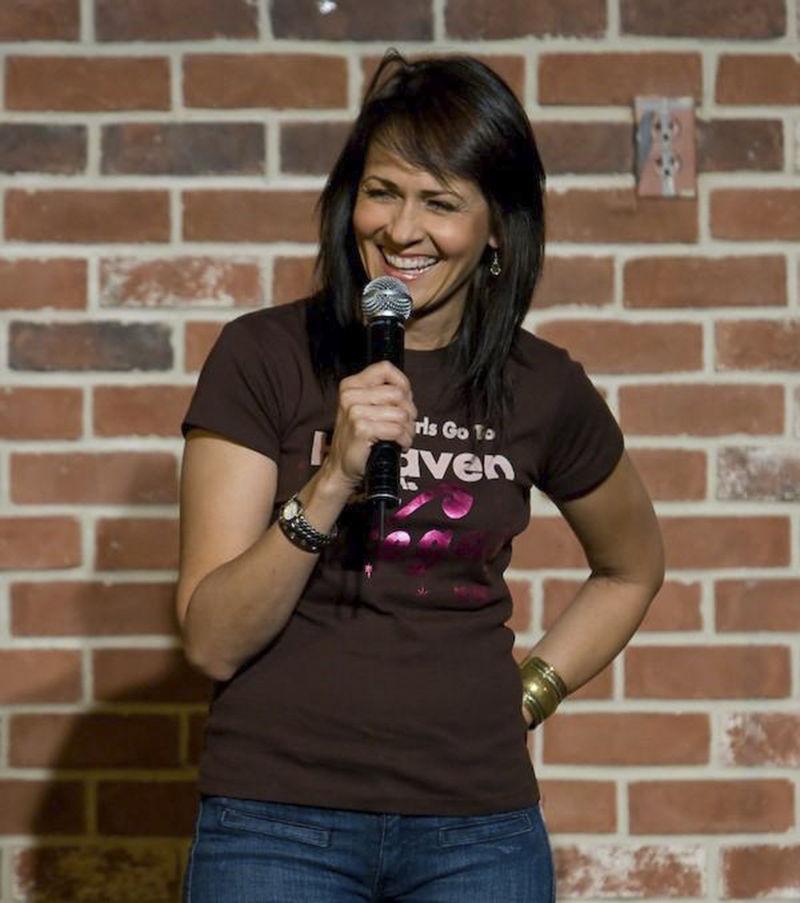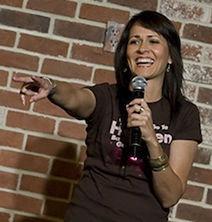Shayla Rivera, Class of 1983, worked at NASA upon graduating from A&M with a degree in aerospace engineering before transitioning to a career in stand up comedy. The Battalion news reporter Nikita Redkar spoke with Rivera about her decision to make the switch from hard science to comedy.
THE BATTALION: Even though you’re currently doing stand-up comedy, you got your degree from A&M in aerospace engineering. How did that start?
RIVERA: I’m originally from Puerto Rico where I was born and raised until right after high school when I left for Houston with my parents. My sister was already going to engineering school upon my graduation, so when I got to Texas I began applying to colleges and ended up choosing A&M. I did aerospace engineering and worked for NASA for eight years.
THE BATTALION: How did you start at NASA and what were your responsibilities?
RIVERA: I went down with three girlfriends from the aerospace department for an opening and got interviewed for a job under NASA’s Space Shuttle contract. At first I had no idea what I was doing, just like any recent graduate. When you start off, you don’t know anything. You just know where to go find answers. Eventually, my first work was in the external tank system and rocket boosters of the shuttle. I worked in the group to make sure the rocket debris was controlled and didn’t land on anyone upon the rocket’s landing back onto Earth. I trained with mission control operators and the space station. It was so fun and really interesting. I learned a lot of science and a lot about myself. Plus it’s always cool to tell people I’m a rocket scientist.
THE BATTALION: So what made you decide to shift gears into comedy?
RIVERA: After NASA I got into sales in Houston, and that’s when I got to work with people more. I was getting to hone in on my skills of talking to people and being funny and I began to love it. It was in a sales seminar where I first got exposed to a motivational speaker and I could not believe the power he held. I was amazed at his influence and how his words could have so much power. Right then, language become very important to me because I didn’t speak English when I got here and I was working on it every day. I made a mental note that I wanted to be like him, but I had no idea where to start. I ended up attending a networking event where I met a stress management speaker and after the event, I showed up at his office and told him I wanted to work here. He had no idea who I was and said they weren’t hiring, but I told him I was adamant and motivated and my perseverance moved him into hiring me. I went through corporate and stress management training for motivational speakers and began doing keynotes and it was really close to what I wanted to do the rest of my life. After a few of these events, people kept telling me I should be a comedian so I decided to give it a shot. And that was it. After my first show, I knew this was it.
THE BATTALION: What was the first time you did comedy like?
RIVERA: I signed up for a stand-up comedy seminar in Houston — which they never have anymore — and learned the basics of comedy. I learned writing for comedy is much different than writing a keynote speech. Comedy is measured in laughs per minute and contains cycles of set-ups and punchlines. Part of this seminar’s “graduation” was a stand-up show and I was scared out of my mind. I prepared five minutes worth of material and practiced it obsessively — so much that I can, to this day, recite those exact jokes! I got up on stage, told my jokes and people laughed — I didn’t expect that. But I liked it. It was like finally coming home.
THE BATTALION: What have been some of the challenges you’ve encountered in this industry?
RIVERA: Comedy is enjoyable, but it’s hard. After my first show, everything went really fast for me. I had no problem with it until I got to Hollywood and Hollywood is an interesting beast. The culture there maintains types, and you are a “type” before you are anything else. My first set in Hollywood was about me being a Puerto Rican woman working in NASA and my experiences there, and at first people did not find that image believable. Hollywood has ideas for what a Puerto Rican woman should be, like a maid or a nanny. Female comics also have it pretty tough, because a lot of men just don’t think women are that funny. Especially if you’re attractive, then you have no chance of being funny at all. As a female comic, you really have to hit the ground running with your jokes.
THE BATTALION: In that regard do you use comedy as an outlet to focus on any current issues for women or minorities?
RIVERA: I do. My comedy is observational in every sense and builds off the reality I reside in. Comedians have to talk about what they know and what they’ve experienced. You have to use your specific experiences and twist that to relate to others and that’s what makes the best comics. Although the industry is beginning to bridge the gap, women are held to a lot of expectations that male comics don’t have to face. What about a woman who’s Latina, a rocket scientist and a comedian? There’s no such a type to fit into, I am my type.
THE BATTALION: Considering you have taken a significant change in career path, what advice would you have to give to those currently in college or about to graduate and start a life of their own?
RIVERA: The main concern I see is young people look at what they’re studying and think, “I don’t know if I want to do this the rest of my life,” and that’s exactly how I felt when I first started out at NASA. I did what I could and I did it fully, then I had a realization I didn’t want to do this forever. My advice is do what’s in front of you with all the passion you have. Then listen to yourself and ask whether you’re comfortable here or you need to go somewhere else — and if you need to be somewhere else, take that risk. Sign up for seminars, walk into offices and say you want to work with them and are willing to learn. School can be very intense, especially at A&M. But know the days of going to school in order to work until we retire and die are gone. Now, you need to live until you’re not alive anymore. You’re not going to be the same person or doing the same thing in 20 years what you’re doing now. Find a way to get to what you enjoy doing, and as long as you’re enjoying the path you’ll be at the place where you think, yeah, this is actually really cool. But most importantly, laugh. We take ourselves too seriously. Take a deep breath and just find a way to enjoy yourself. Learn to live outside others’ universe and thrive in your own. Don’t damage anyone and you’ll be okay. Everyone will be okay.











